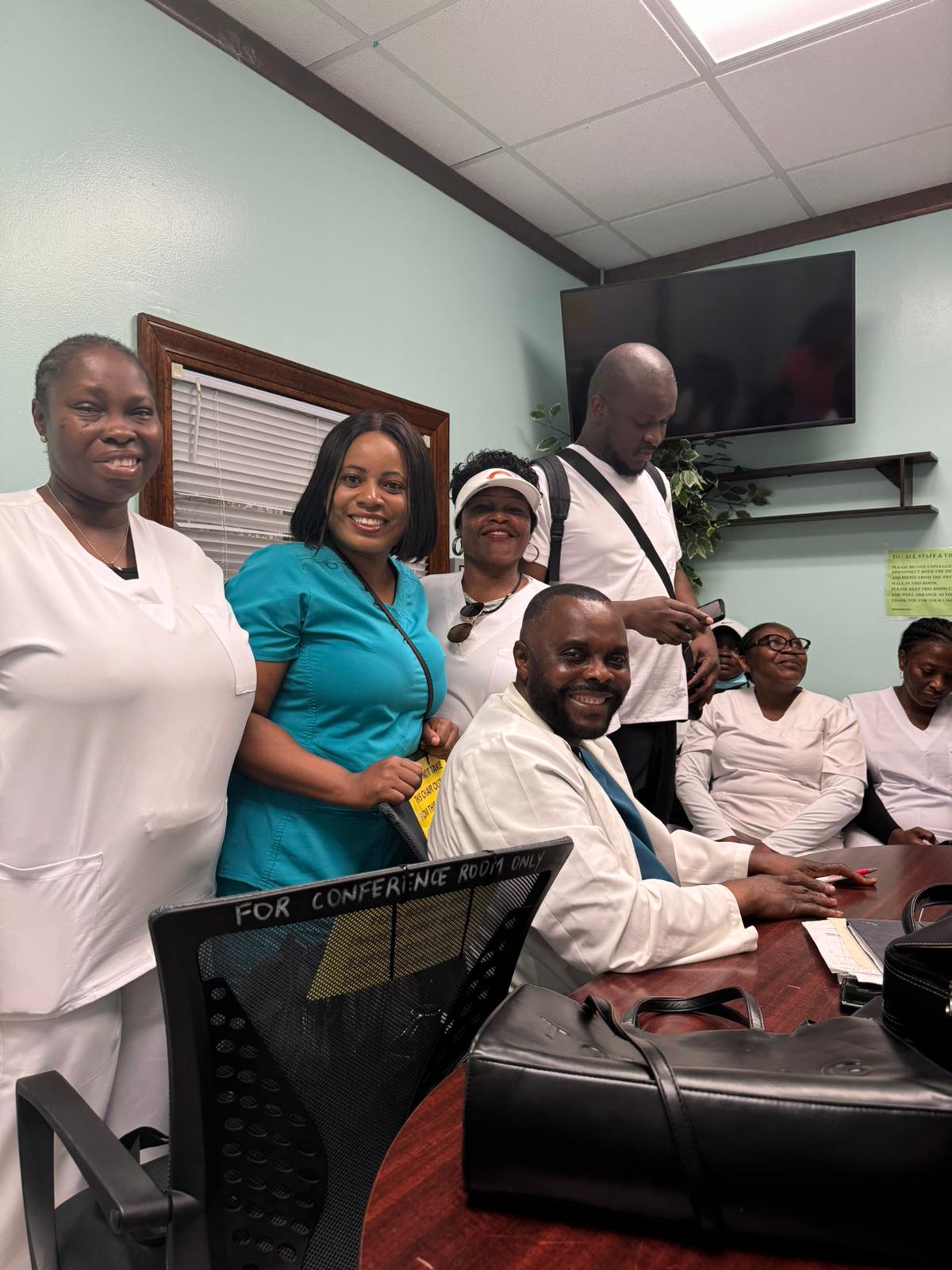
Phlebotomy Teaching Program Program Length
About Course
- 300 total hours over eight weeks (Classroom-200 hours; Laboratory & Clinical- 100 hours)
- Lecture/Lab Component: Weeks- 6 Laboratory Practical Component: Weeks 2
COURSE DATES & SCHEDULE
- A new Phlebotomy Technician program starts approximately every nine weeks.
- Classes are held on Monday through Friday-9:00 am to 5:30 pm.
- Students must complete 100 successful venipuncture classes and may need to attend more than the required clinical hours to complete this if necessary.
- Each class has 12-15 students to ensure one-on-one training in our laboratory.
PROGRAM PHILOSOPHY
The program’s philosophy is to provide education and training so that students have a thorough understanding of the various job requirements of a phlebotomist. A phlebotomist is a member of the healthcare delivery team whose primary responsibility is obtaining blood specimens from patients used for clinical laboratory analysis, which provides physicians with vital information for diagnoses, progress monitoring, and treatment. Due to the integral role that clinical laboratory analysis plays in the total healthcare delivery system, a continuous need for qualified laboratory personnel exists.
PHLEBOTOMY TECHNICIAN COURSE DESCRIPTION
The course provides essential knowledge and skills necessary to perform venipuncture (Phlebotomy) in a clinical setting. In addition, the course will prepare students to obtain the Phlebotomy certification from the National Healthcareer Association (NHA). Students receive instruction in patient care and professionalism, basic anatomy and physiology, medical law and ethical issues, safety and infection control, HIV/AIDS, HIPAA, blood collection equipment, and venipuncture procedures. Venipuncture procedures are done following current standards under the supervision of instructors using fellow students. All students must be willing to participate as providers and receivers of phlebotomy.
COURSE OBJECTIVES
Upon completing this course, students will be able to:
- Identify the role and function of a phlebotomist in the health care team. (Patient care and professionalism)
- Demonstrate knowledge of safety and infection control.
- Understand and follow OSHA Universal Precautions and Standard Precautions.
- Demonstrate a basic understanding of anatomy and physiology in relation to general pathologic conditions.
- Demonstrate an understanding of the importance of patient identification in specimen collection.
- Determine appropriate venipuncture and capillary puncture sites.
- Identify and select appropriate collection equipment and additive collection tubes used in venipuncture.
- Perform venipuncture using the evacuated tube method, winged infusion, and syringe method.
- Identify and select appropriate capillary puncture equipment.
- Perform adult/infant capillary punctures.
- Urinalysis and centrifuging
- Blood Pressures
- Understand and follow HIPAA laws (privacy laws)
This list is not all-inclusive, as new skills are taught throughout the program according to the current standards required.
ENROLLMENT PROCESS
- Applicants must be at least 18 years old and have graduated from high school or hold a Graduate Equivalency Diploma (GED) or higher at the time of enrollment.
- City College does not discriminate based on age, race, color, religion, ethnicity, sexual orientation, gender, or disability.
- Applicant must be a citizen or legal resident of the United States or its territories (a copy of your US passport or Green card must be submitted).
- A pre-enrollment interview is required to be considered for possible enrollment. The interview introduces potential students to the program and makes sure the student has the potential to be successful in this career.
- Applicants denied or accepted into the program will be notified by email or phone within three business days of the interview.
- Applicants denied admission to the program may reapply for a subsequent term.
- The Administrator grants admission to the program.
- Accepted students will proceed with the enrollment process and must meet/provide the following.
- A picture ID (issued by a state or federal body)
- Negative TB test result done within the last six months of the term the student is applying.
- Tetanus results must be completed within the last ten years.
- Hepatitis B series results.
- CPR card for Healthcare providers. This is required before graduation and will be offered at the school for $45:00.
|
Itemization of Costs |
Cost |
|
|
Supplies (Lab Coat, Badge, Laboratory Supplies) |
$120.00 |
|
|
Tuition for district residents |
$550.00 |
|
|
Registration Fees = |
$100.00 |
Non-Refundable |
|
Textbook, Workbook notes, and Notes |
$99.00 |
|
|
Laboratory Fees |
$130.00 |
|
|
Total Cost of Program |
$1500.00 |
CERTIFICATION (SCHOOL AND NHA)
- Upon completing the program, students will receive a certificate of completion from City College of Education Inc.
- American Social Services of Uptown Inc., a partner company of CCE, is approved by the National Healthcareer Association (NHA) as a testing site for graduate Phlebotomy students, and students may choose to take the NHA certification exam upon completing this course.
- Most employers require a National Certification. Therefore, we encourage students to take the National Certification Test upon program completion.
- Students can participate in the CCE study classes at no additional cost before taking the test. The study class is a three-day session (each session is for 6 hours).
- CCE will provide information on registering for the NHA certification exam before the end of the program.
- The cost of the exam is $105.00. It is a proctored exam administered via a computer.
SAFETY NOTICE AND STATEMENT OF PHYSICAL RISK
The clinical portion of this course introduces students to the proper and safe use of venipuncture equipment, including needles and lancets. There is an inherent safety risk when using these devices, and as such, guidelines about sharps handling and disposal will be taught and made available for students.
Disregarding safe practices, as described in the Student Code of Conduct section will result in disciplinary action. A verbal warning is issued at first, which may be followed by a written warning and a corrective action plan. Depending on the situation, the student may be expelled from the course with pro-rated tuition refunded according to the tuition schedule, if applicable.
This course incorporates the practice of invasive procedures, and the instructor reserves the right to exclude any student from performing or receiving a phlebotomy procedure based on the appropriateness of the situation. Doing this ensures that all students are treated fairly and safely. Physical risks of participating in the class include discomfort from venipuncture and capillary puncture and possible exposure to potentially infectious materials.
There is potential for exposure to infectious materials; therefore, both Standard and Universal Precautions must be followed at all times by all students to ensure their safety.
Strict observance of these precautions is mandatory. Failure to comply may result in expulsion from the course. If exposure does occur, students and staff should follow the procedures for exposure as described in the safety manual.
STANDARD PRECAUTIONS AND UNIVERSAL PRECAUTIONS
The CDC recommends using Standard precautions to prevent transmission of microorganisms from known and unknown sources in the healthcare setting. Blood and most body fluids and secretions are potentially infectious regardless of the known status of the source patient. For this course, Standard Precautions will be observed when performing all phlebotomy procedures, which include hand washing, hand sanitization, and personal protective equipment- gloves, gowns, and masks. OSHA Bloodborne Pathogens Standard uses Universal Precautions to minimize the risk of transmission of blood-borne pathogens such as HIV/AIDS, Hepatitis B, and Hepatitis C. Universal Precautions require that all blood and body fluids be treated as potentially infectious.
For this course, Universal Precautions are observed, which include hand sanitization, hand washing when hands are visibly soiled with blood, personal protective equipment such as gloves, gowns, and masks, work practice controls such as surface disinfection and engineering controls such as safety devices on equipment and proper disposal of regulated bio hazardous waste in sharps containers.
STUDENT CODE OF CONDUCT
City College of Education Inc. is committed to creating a safe environment that promotes learning and teaching. Each student must behave in a safe, ethical, respectful, and professional manner. Unsafe or unprofessional behavior will result in disciplinary action. Initially, the student will receive a verbal warning from the instructor or the program director. Further incidents will result in a written warning, and the instructor or program director will meet with the student to create a corrective action plan. If the problem continues, the student’s enrollment in the course may be terminated, and pro-rated tuition refunded according to the cancellation and refund policy.
City College of Education Inc. reserves the right to implement reasonable corrective action, which may deviate from the general description above as necessary, depending on the severity of the situation. Examples of unsafe or unprofessional behaviors include, but are not limited to:
- Excessive tardiness/absenteeism.
- Inappropriate dressing; see Dress Code Policy.
- Failure to follow written and verbal instructions.
- Students exhibit threatening, aggressive, or hostile behavior directed at fellow students or the instructor.
- Behavior that interferes or disrupts teaching and learning.
- Academic dishonesty, such as cheating, fabrication, tampering, or plagiarism
- Attending class under the influence of any drug or substance that impairs judgment or may interfere with the safe performance of venipuncture procedures.
- Attending class under the influence of any alcohol or illegal drug.
- Performing venipuncture procedures without appropriate supervision.
- Disregard for Universal Precautions, Standard Precautions, or proper handling of sharps.
Additionally, students will receive feedback from instructors in a professional manner. If a student has concerns over the feedback received in class, the student must address the problem according to the process for student complaints.
DRESS CODE POLICY
- Students must maintain a well-groomed and neat appearance.
- All clothing must be neat and clean and avoid wearing perfume or cologne to class.
- Students must keep their fingernails short and clean as we adhere to strict infection control policies.
- Required attire includes healthcare uniforms (scrubs) free of logos.
- Close-toed shoes due to the potential for exposure to biohazardous material.
- Hair (including facial hair) should be neat and clean.
- Students with long hair must have it tied back during laboratory/clinical hours.
INTERPERSONAL
Students will demonstrate an understanding of the profession of Phlebotomy through ethical behavior when dealing with patients and other members of the healthcare team, including maintaining a professional appearance to relieve patient anxiety and maintaining patient confidentiality.
SYSTEMS
Students will use problem-solving skills to troubleshoot basic equipment issues or procedures that do not fall within standards, take corrective actions, or inform an appropriate supervisor.
TECHNOLOGY
Students will perform vein and capillary puncture procedures using various methods and equipment, including a Vacationer system, micro collection devices, a Winged Infusion Set, and a syringe and needle.
REQUIRED TEXTBOOK AND MATERIAL
- Phlebotomy Essentials Workbook 5th Edition. By Ruth E. McCall and Cathie M. Tankersley
- Complete Guide for Phlebotomy Technician. Hartman Publishing, Inc
- Scrubs
- 3-inch binder with dividers (recommend 7 tabs)
- Sharpie permanent marker – fine point, black or blue
- Medical Dictionary
- Interpretation of Laboratory Testing
ADDITIONAL REQUIREMENT
- Students need basic computer skills to complete the course successfully.
- Each student must have an email account.
- A clear Criminal Background check.
EXAMS AND FINAL EXAM
Students will be required to complete a performance evaluation exam at the end of the program. The exam will comprise both a written test and a performance test. Students will need to score 75% on each of the two tests.
Students will complete unit pretests (Exam Review Quizzes) on previously covered lecture material and laboratory exercises.
Students must complete pretests before they take the examination.
Students can take the pretest multiple times, and a score of 70% is needed to qualify for the final exam.
The pretest scores are averaged and are worth 5% of the lecture grade.
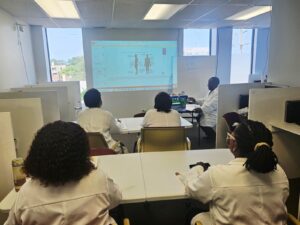
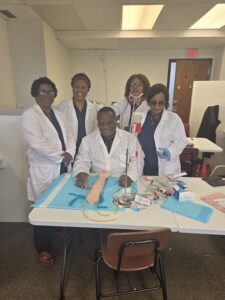
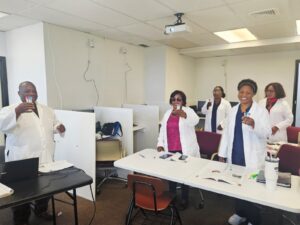
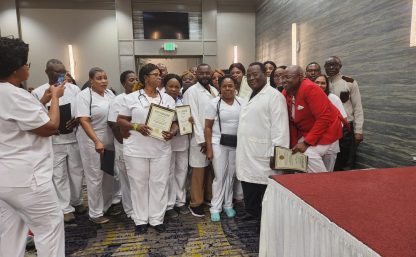
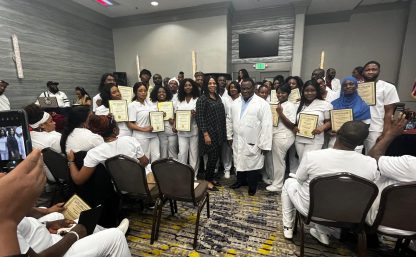
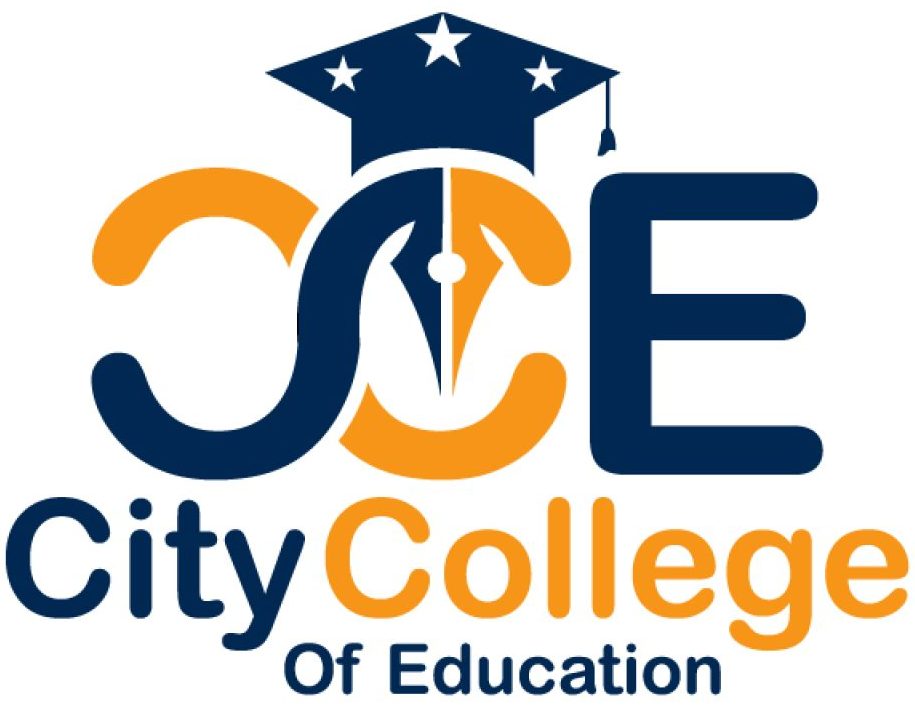
Especially loved how you structured the entire focus area of dieting into most important ones to lesser ones.